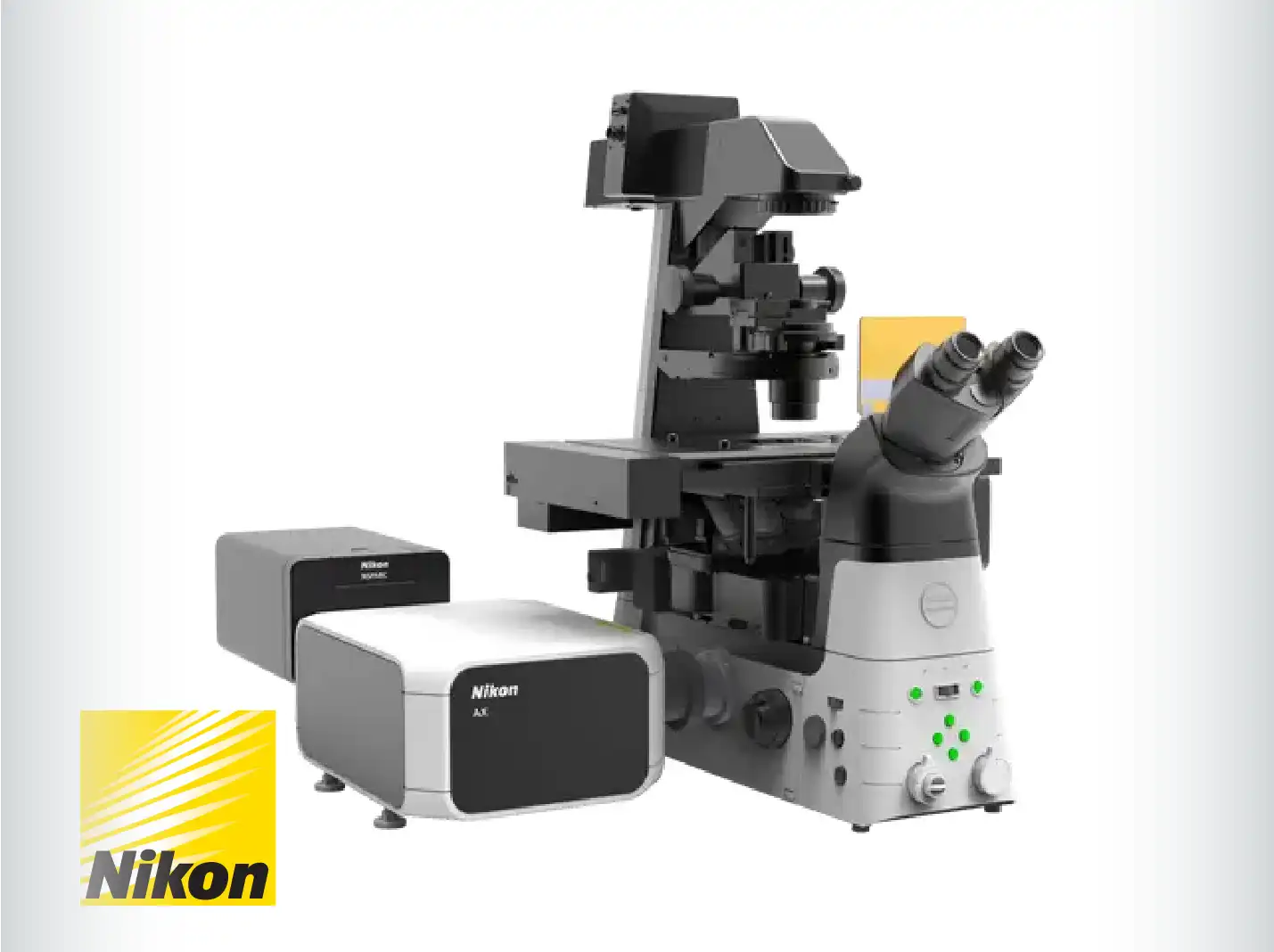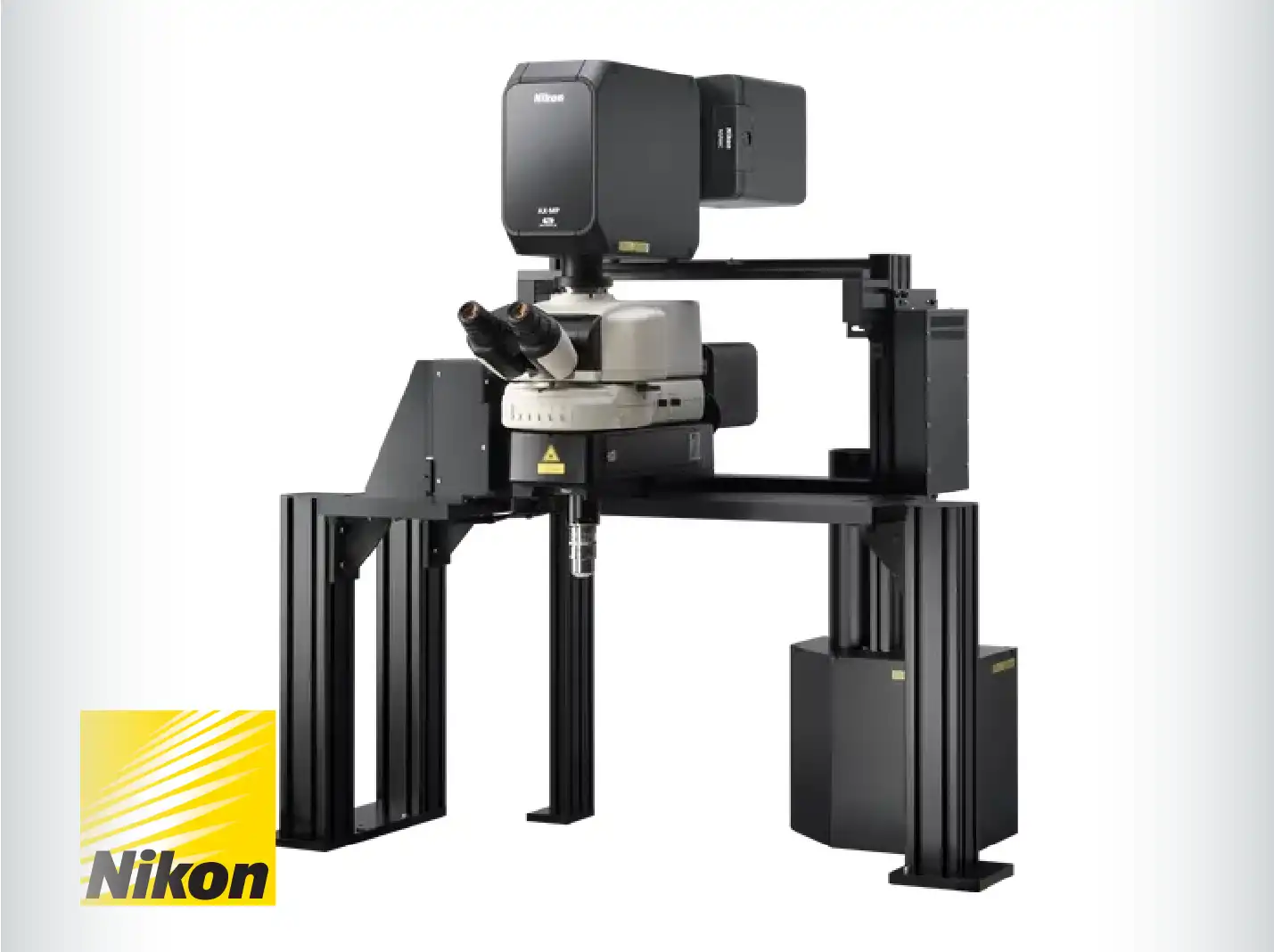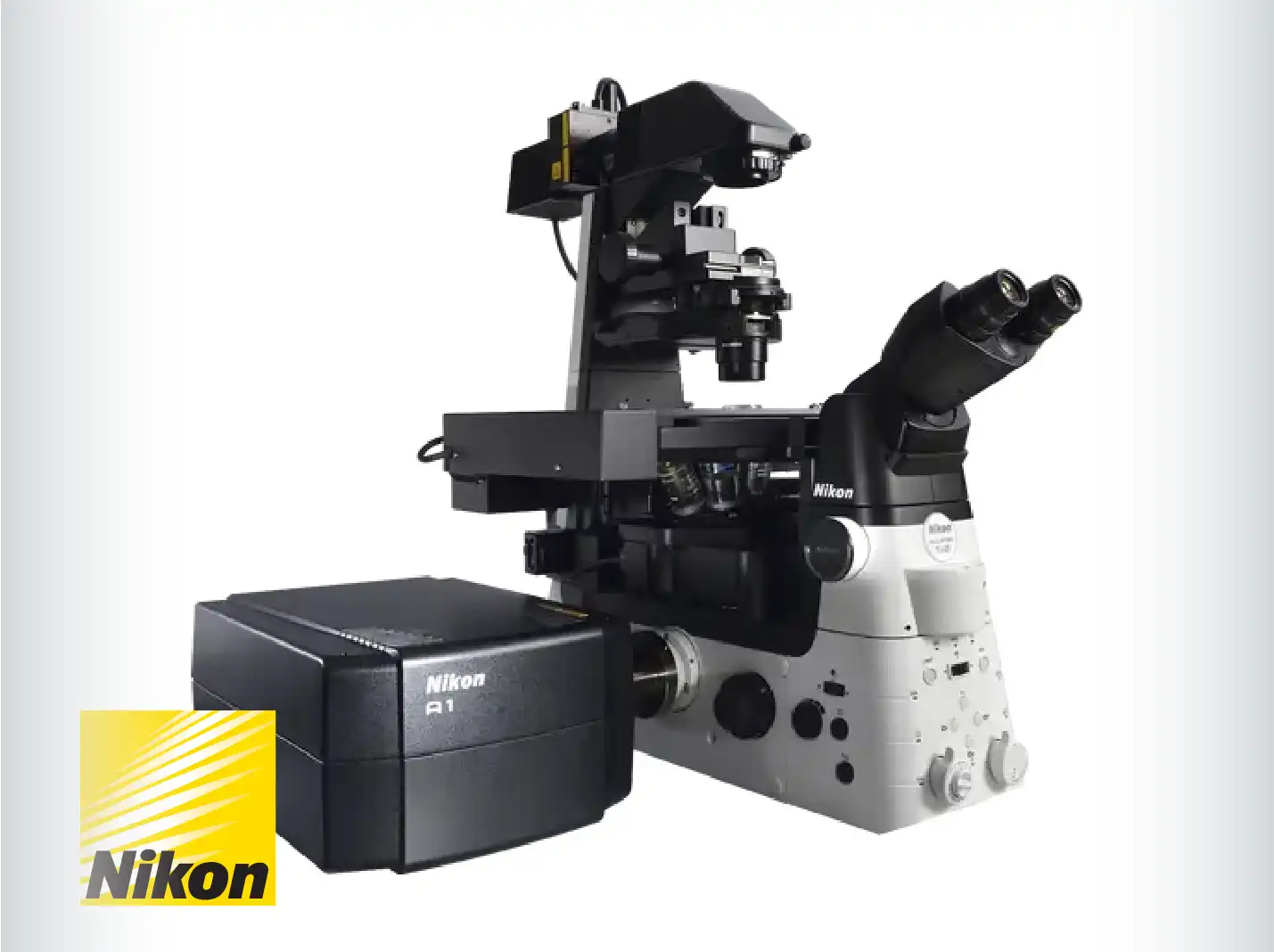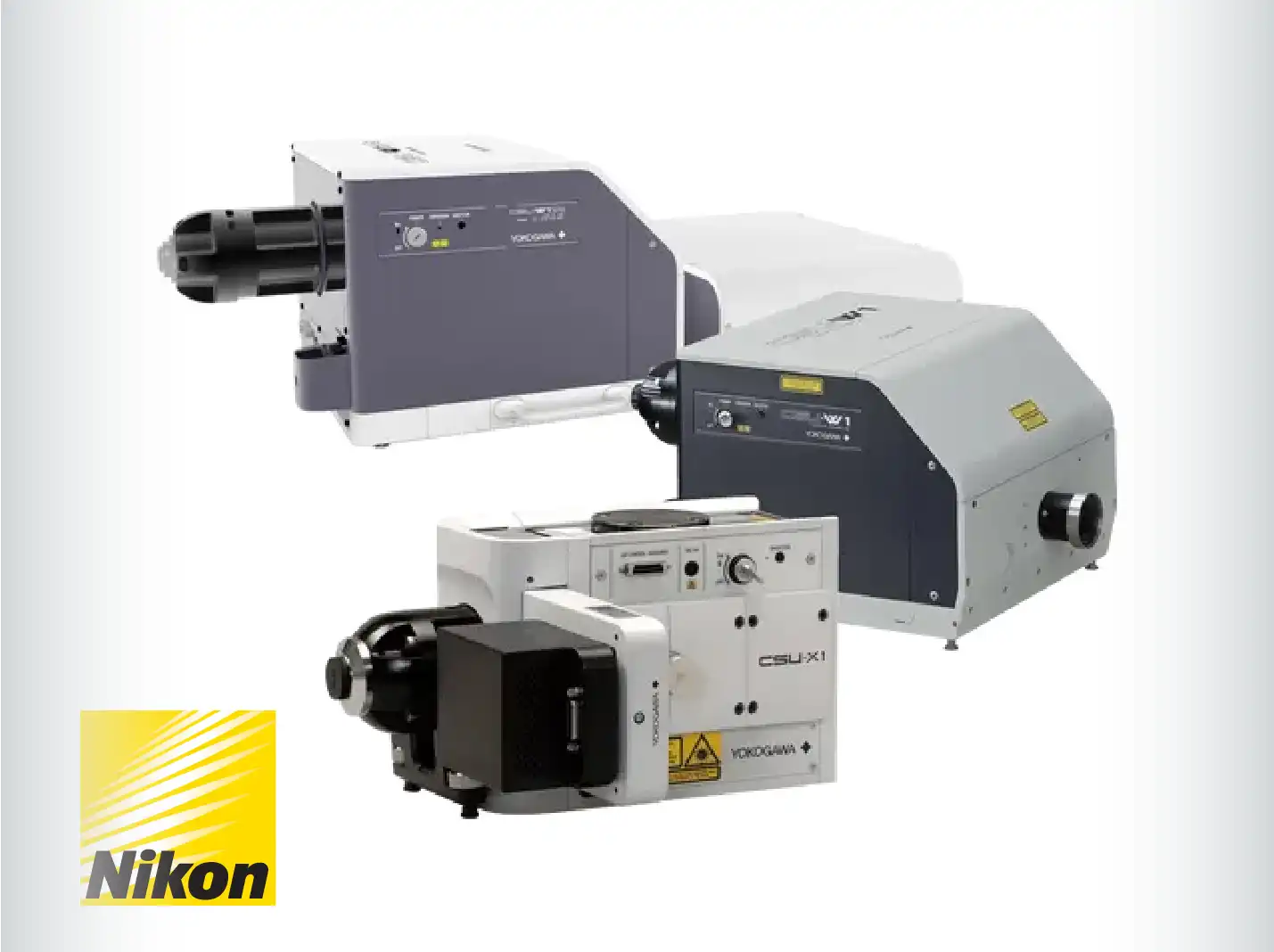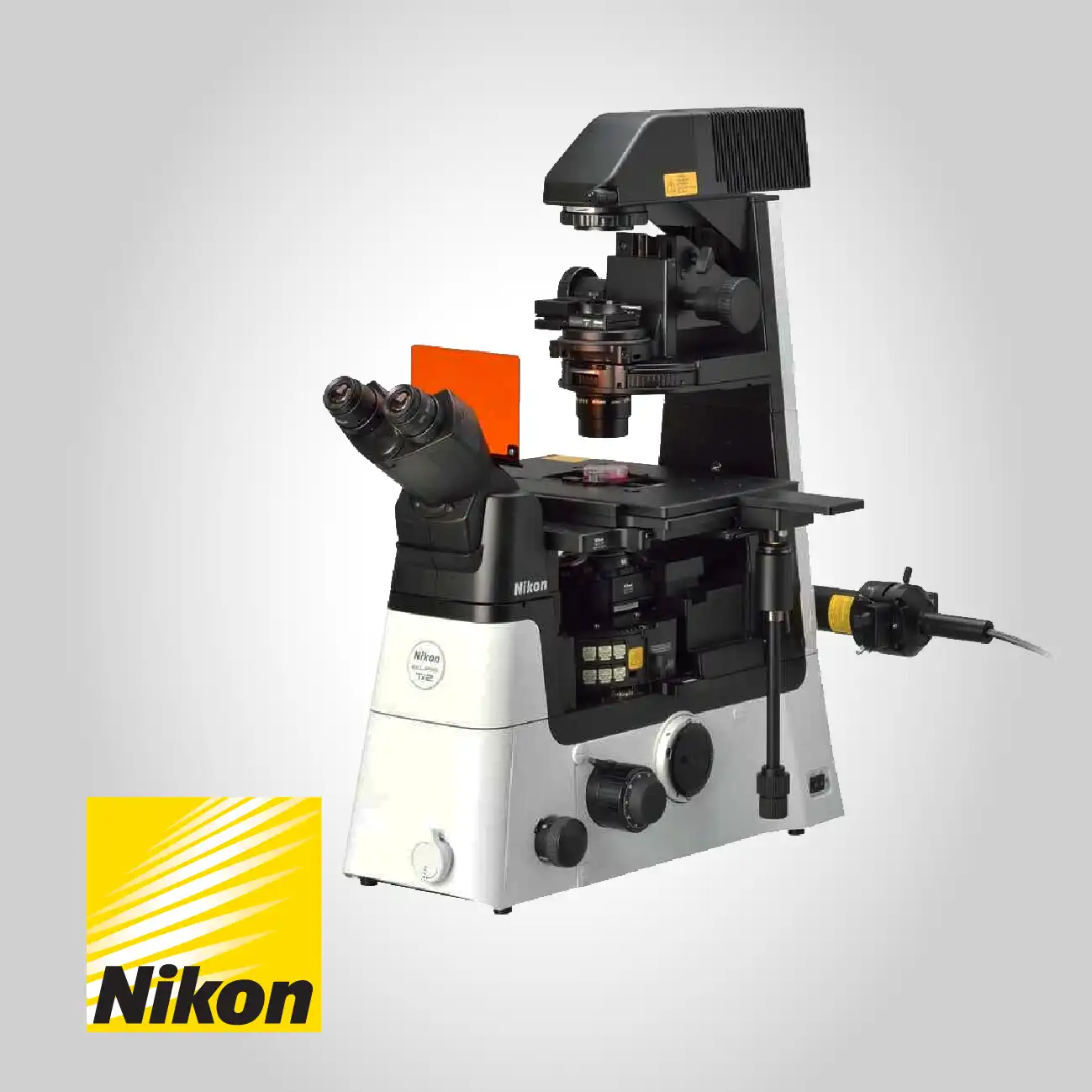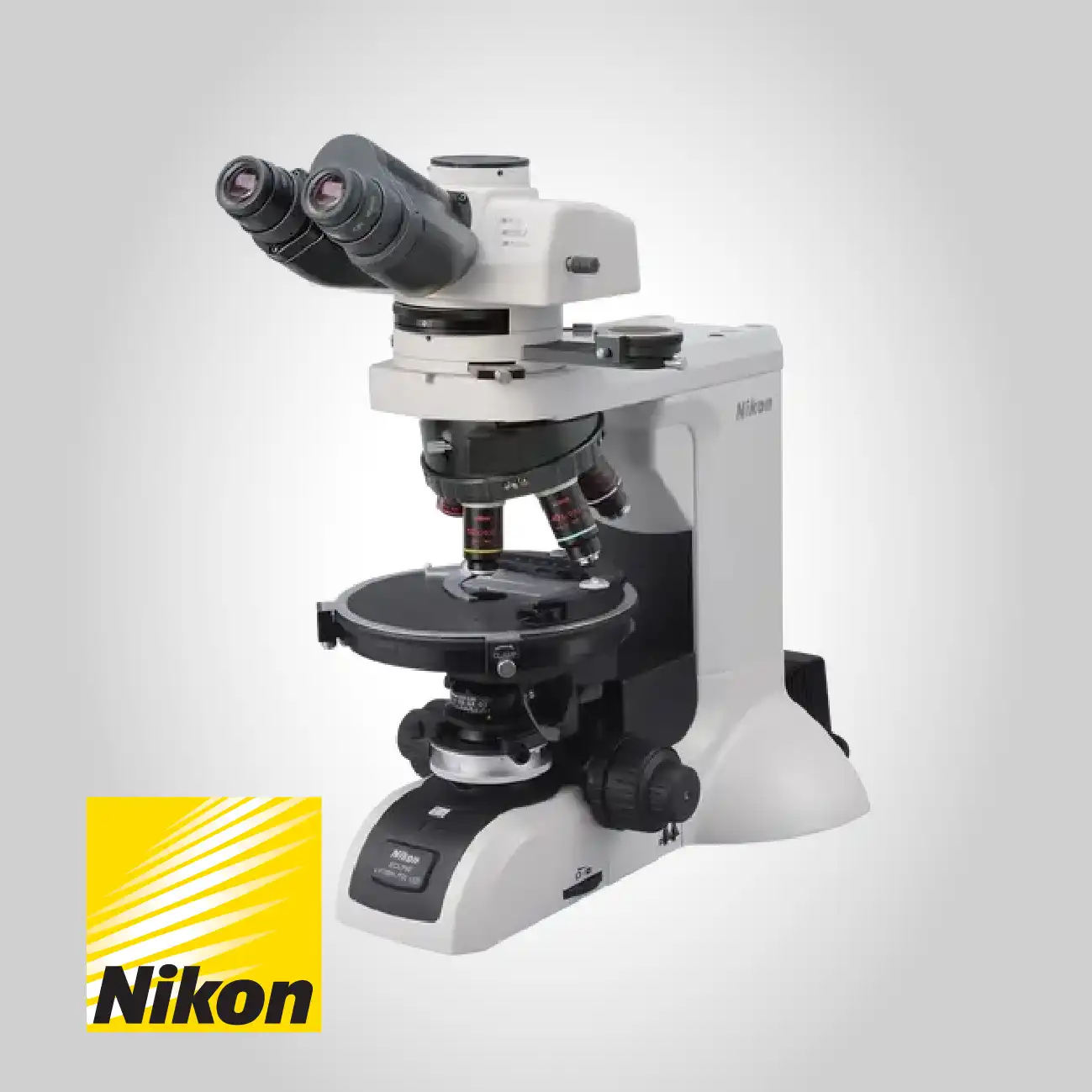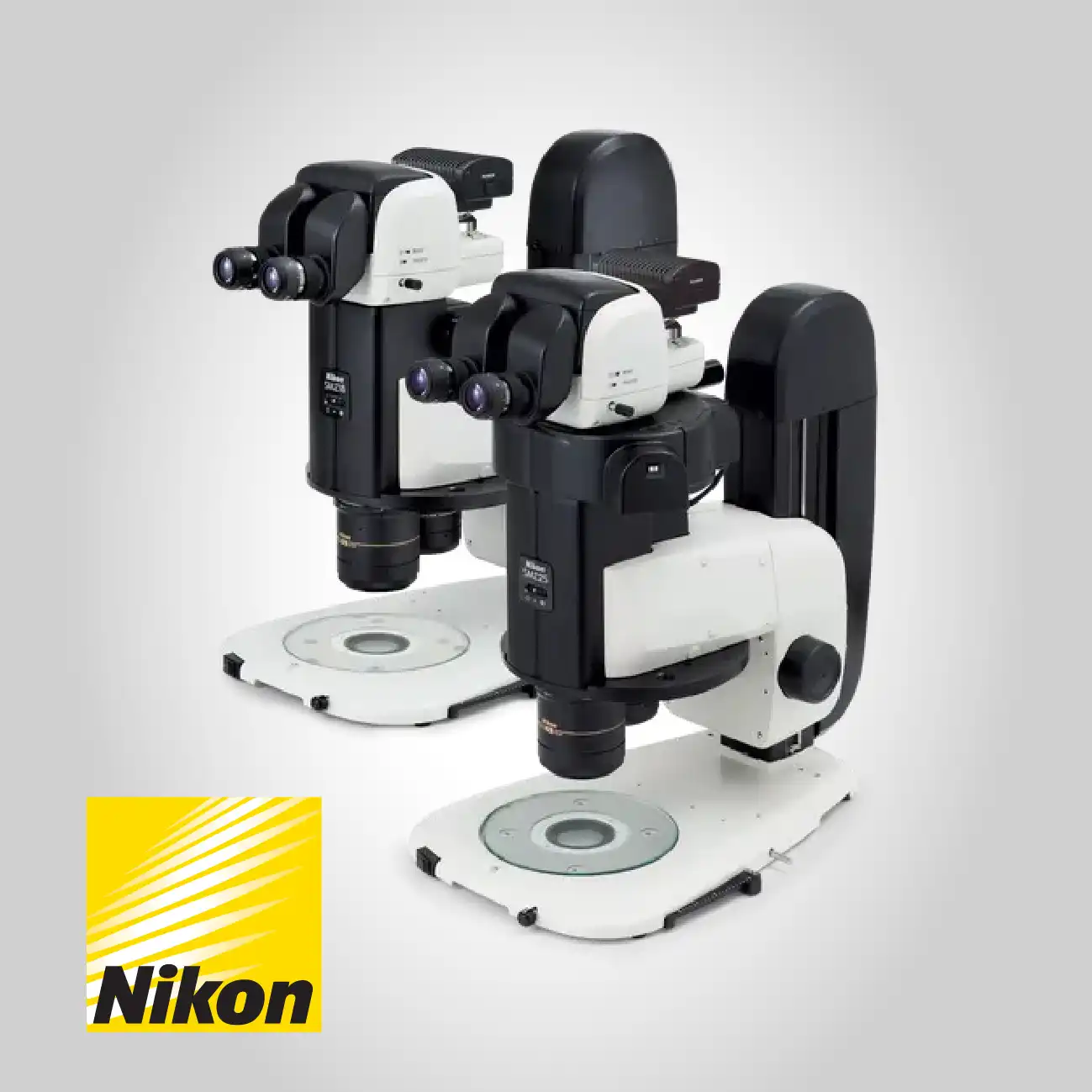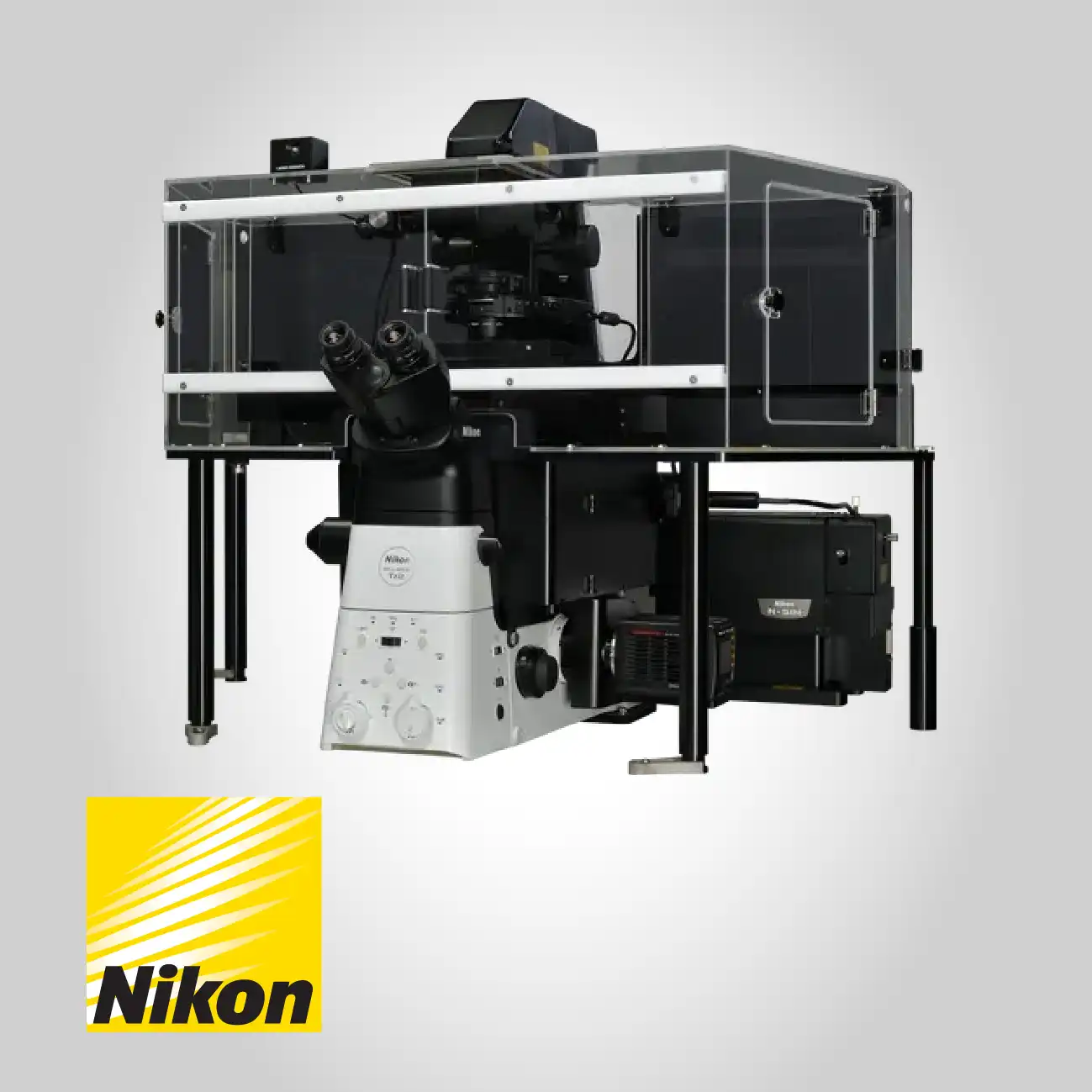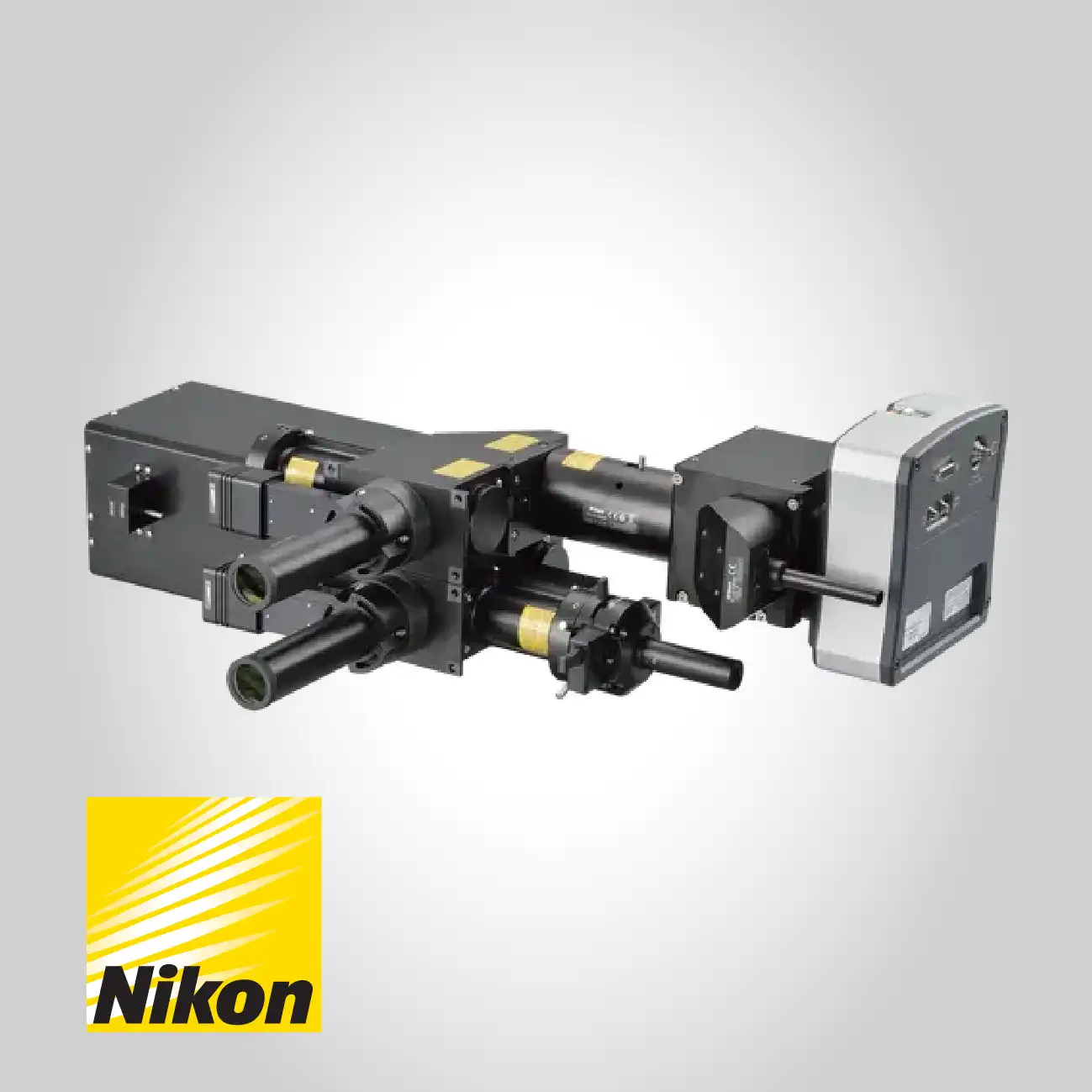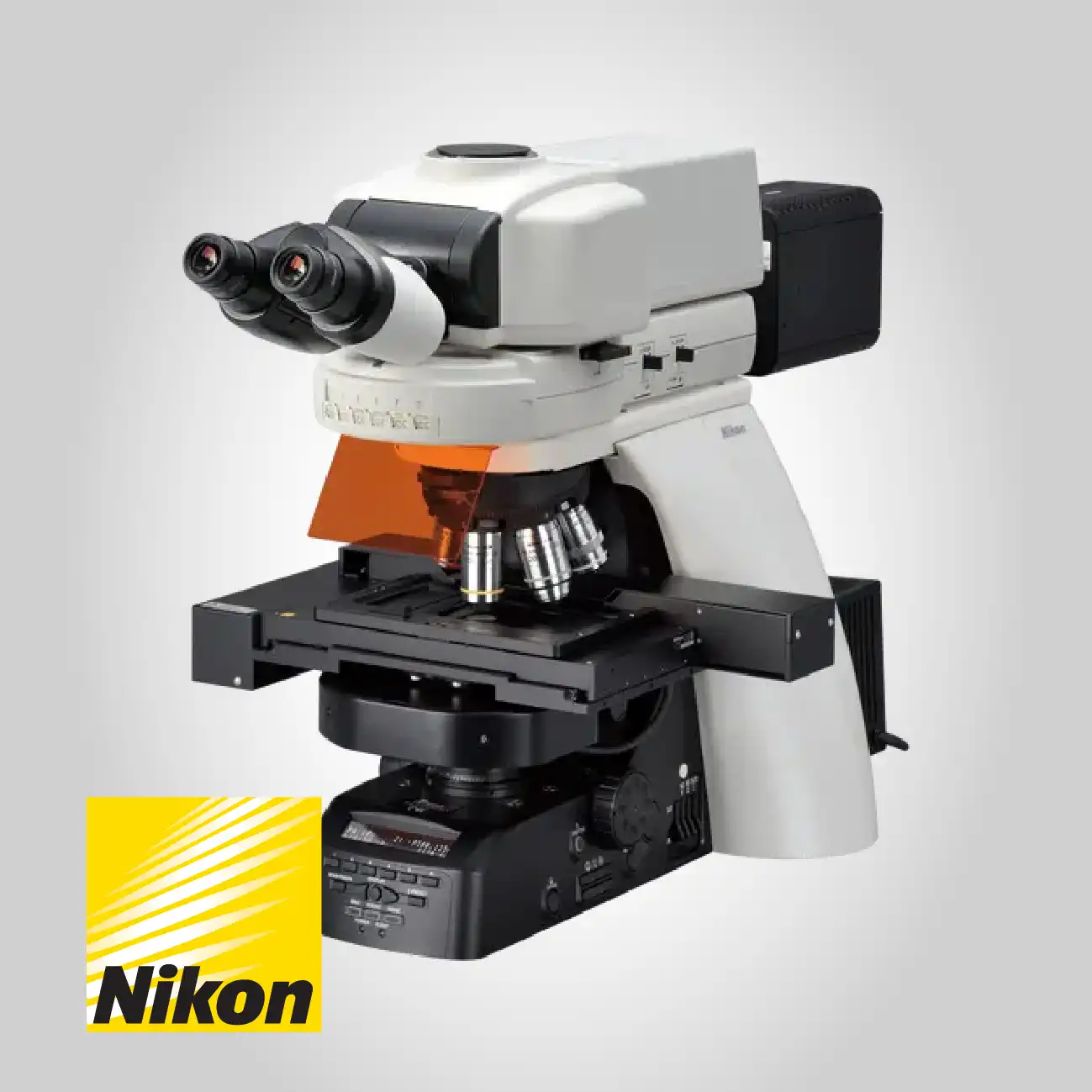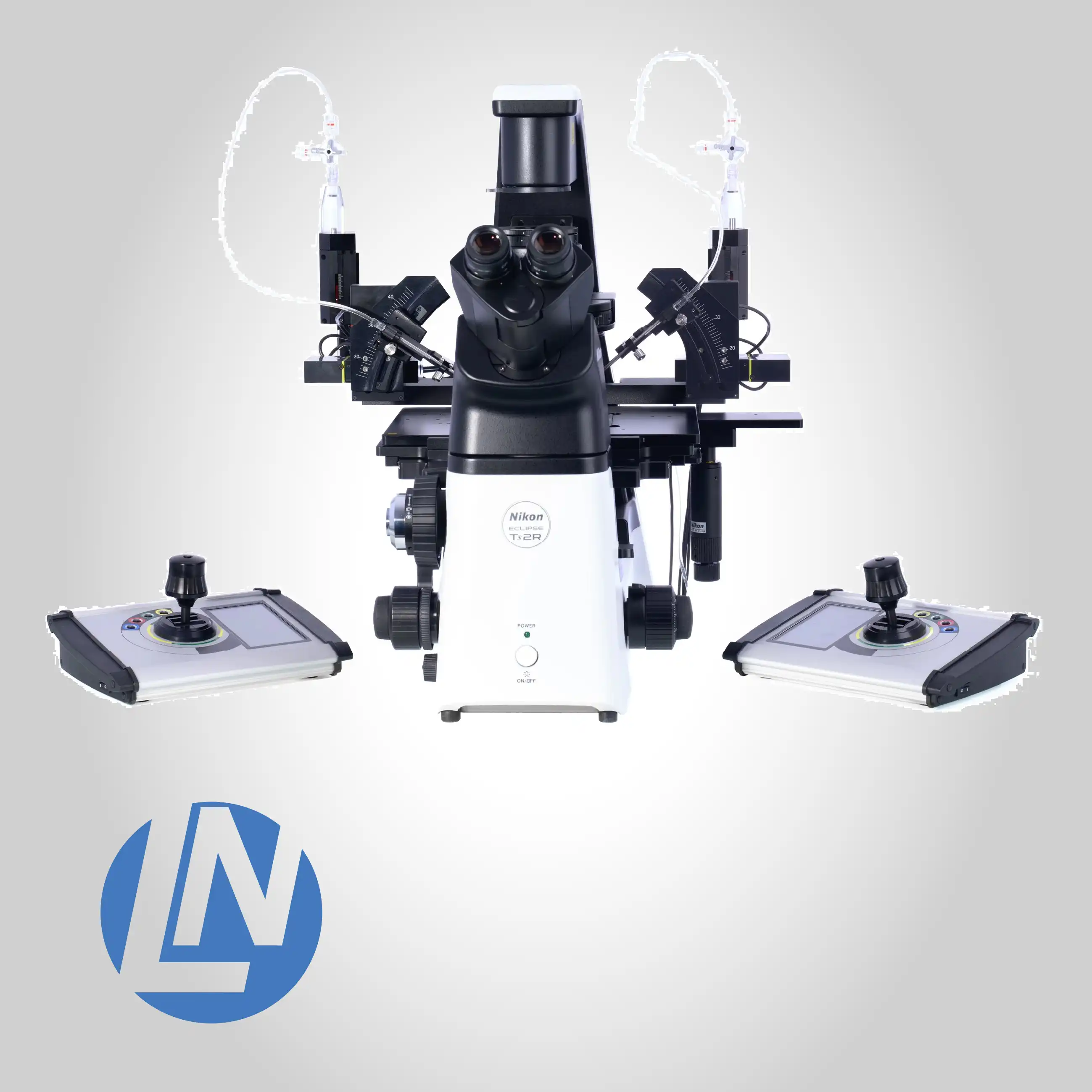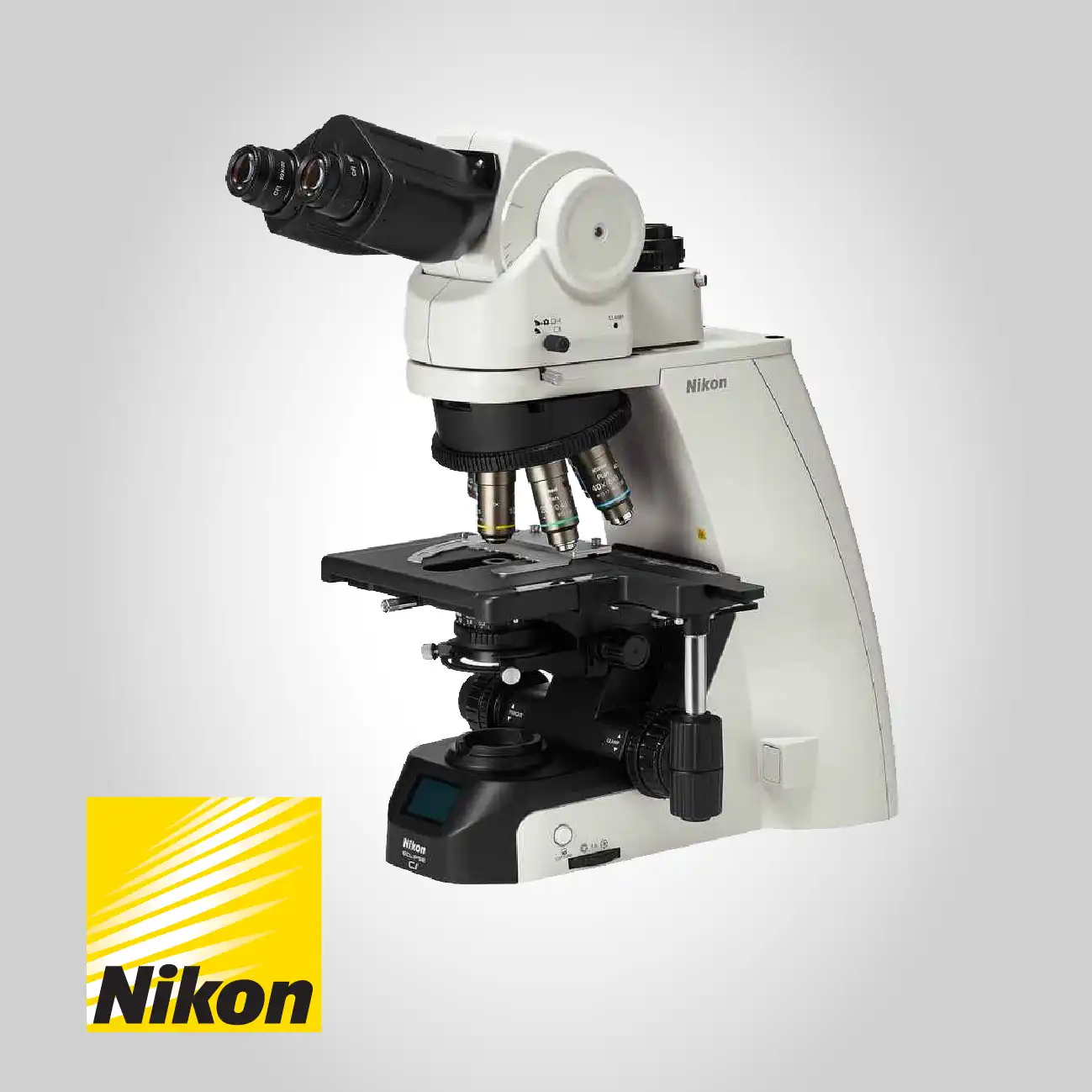
Home » Products » Microscopy & Imaging Systems » Microscopes & Optics » Nikon Confocal & Multiphoton Microscopes
Nikon Confocal & Multiphoton Microscopes
High-Resolution Imaging for Complex Biological Samples
Nikon Confocal & Multiphoton Microscopes
Nikon’s confocal and multiphoton microscopes are designed to overcome the fundamental challenges of high-resolution biological imaging. Confocal systems like the AX/AX R and A1 HD25 provide large field-of-view (up to 25 mm), fast acquisition, and precise optical sectioning for detailed 3D reconstructions. Multiphoton microscopes extend this capability deeper into living tissues, reducing phototoxicity and preserving embryo viability during long-term imaging. Together, these platforms enable researchers and IVF specialists to visualize fine subcellular structures, monitor dynamic processes, and generate reproducible datasets with confidence.
A key pain point in IVF and developmental biology is the inability of traditional microscopes to provide depth-resolved imaging. Confocal microscopes address this through optical sectioning, capturing thin slices of embryos or tissues without physical sectioning. Nikon’s A1 HD25 pushes this further with a 25 mm field of view—the widest in its class—allowing large specimens to be imaged at high resolution in a single scan. This reduces time-consuming stitching and ensures a more holistic view of embryo development.
Phototoxicity is a critical concern when imaging living embryos or delicate cells. Excessive light exposure can damage samples and compromise viability. Nikon confocal systems optimize laser scanning to minimize exposure, while multiphoton microscopes go further by using near-infrared light that penetrates deeper with less scattering and damage. This allows long-term time-lapse imaging of live embryos without compromising their integrity—a game changer for IVF and live-cell research.
Another challenge in IVF and research imaging is balancing speed with resolution. Slow scanning leads to blurred results in dynamic processes like embryo division. Nikon’s AX R confocal achieves high-speed resonant scanning at up to 720 frames per second while preserving resolution. This allows embryologists to capture fast biological events in real time without losing image quality, supporting precise monitoring of early developmental stages.
Large specimen imaging often requires stitching multiple fields, which introduces artifacts and delays. With Nikon’s large field-of-view confocal systems, researchers can capture expansive embryo or tissue regions in fewer scans. Combined with high numerical aperture objectives, this ensures that both overview and fine detail are available in a single dataset. IVF labs benefit from faster throughput and reduced operator workload.
Data reproducibility is another pain point, as imaging conditions can vary between operators. Nikon confocal and multiphoton systems integrate intelligent software (NIS-Elements) that standardizes acquisition parameters, automates 3D reconstruction, and manages large datasets. This ensures consistent results across users, reducing variability and improving confidence in embryo viability assessments.
Another limitation of traditional imaging is shallow penetration depth, which restricts analysis to surface-level features. Multiphoton microscopes bypass this by exciting fluorophores deep within thick specimens, with reduced scattering and photobleaching. For IVF and developmental biology, this allows researchers to study embryo structures in their natural 3D environment, capturing authentic insights into developmental processes.
High data volumes from confocal and multiphoton imaging can overwhelm labs, leading to bottlenecks in analysis. Nikon addresses this with optimized data pipelines, GPU acceleration, and AI-driven deconvolution tools integrated into NIS-Elements. This reduces processing time, allows real-time visualization of 3D reconstructions, and accelerates reporting, enabling IVF clinics to deliver faster and more reliable outcomes.
Durability and reliability are critical in high-throughput labs. Nikon’s confocal and multiphoton microscopes are engineered with vibration-free platforms, robust mechanics, and long-life laser modules. This ensures minimal downtime, reduced service costs, and consistent imaging quality. For IVF labs where reproducibility and patient outcomes are paramount, such reliability safeguards both scientific credibility and operational efficiency.
Read more about Nikon Confocal & Multiphoton Microscopes





